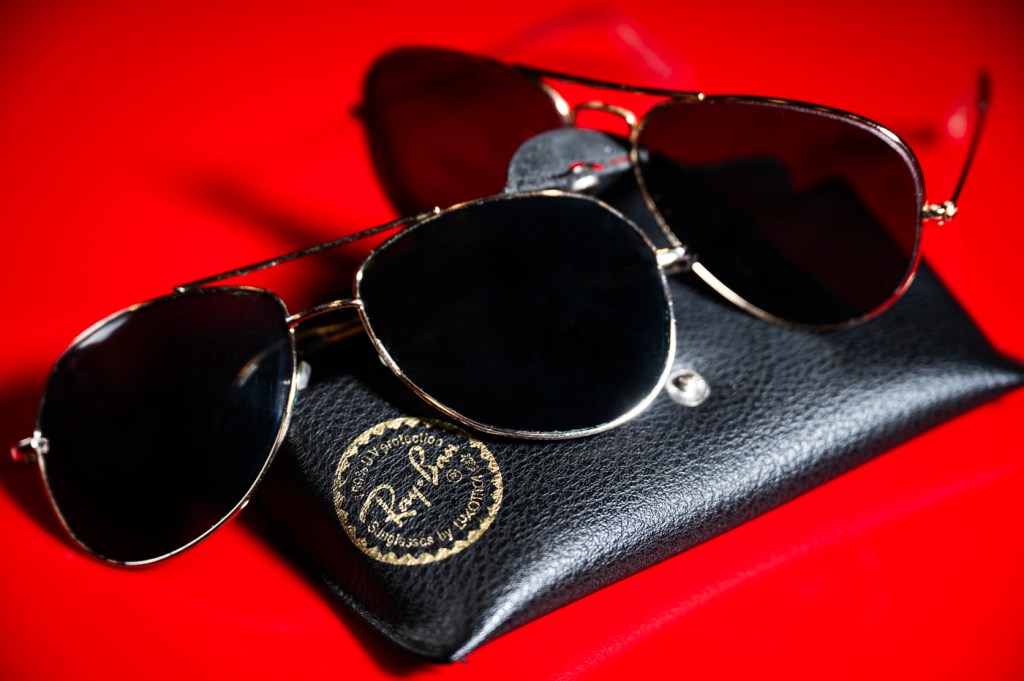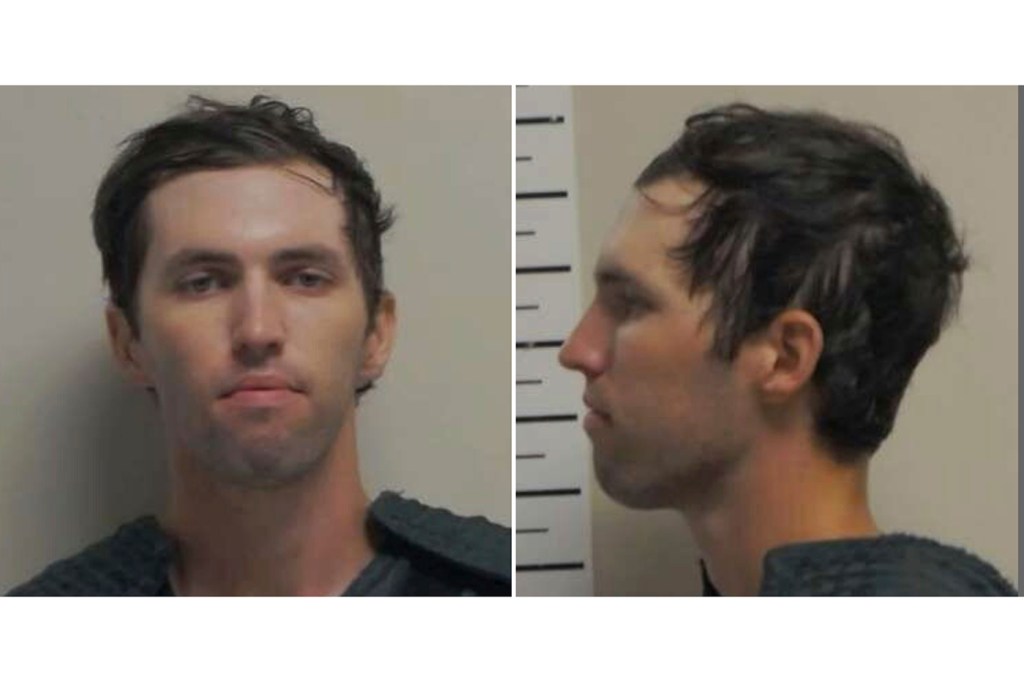From Drunk Elephant substitutes to Ray-Ban knockoffs, is that ‘dupe’ legal?
Northeastern law professor Alex Roberts has new research out on the regulatory questions surrounding dupe products — and why influencers, companies and shoppers looking for cheaper versions of luxury items should beware.

Drunk Elephant products are beloved. They’re also, quite famously, expensive.
Just 1.69 ounces of the skincare brand’s Lala Retro Whipped Cream, a thick, Khloe Kardashian-approved facial moisturizer with ceramides, sells for between $50 and $60 online.
But for shoppers looking for a product like Lala Retro — maybe with the same active ingredients and a similar scent, but without the high sticker price — Google has you covered. A quick search of “Lala Retro Whipped Cream dupes” turns up a range of alternatives from drugstore brands like CeraVe and Weleda at a fraction of the cost.
That usage of the word “dupe” has exploded in the shopping world over the past five years, with companies, online influencers and retail guides deploying it to direct consumers to inexpensive approximations of higher-priced, name brand products. You can find dupes of Gucci loafers and Ray-Ban aviators; Olaplex hair serum and Pottery Barn couches.
Google searches for the term “dupe” rose 40% from 2021 to 2022, according to a new paper from Northeastern University law professor Alex Roberts in the NYU Journal of Intellectual Property & Entertainment Law. In 2023, the hashtag #dupe racked up 6.3 billion views on TikTok. A bona fide cottage industry of fashion bloggers, subreddits and YouTubers is dedicated to dupes; on occasion, searches for a dupe product can outpace queries for its luxury counterpart.
“It can be a helpful search term,” Roberts says. “What they’re talking about most of the time is, you have this high-end product you wish you could buy, but instead here’s an alternative that’s much more reasonably priced.”
But promoting a product as a dupe can enter into a range of legal gray areas, from signal-boosting counterfeit goods to possible copyright infringement and running afoul of consumer protection and truth-in-advertising laws — things for which companies, paid endorsers and independent influencers can all be held liable.
The term is new enough that questions about how it should be used responsibly have yet to be definitively answered by way of federal and state regulations and related lawsuits, which are just starting to crop up.
For the journal paper, Roberts delved into those questions, setting out to pin down the most common meanings of “dupe,” and asking: when is dupe advertising false advertising? When is it trademark or copyright infringement? And how might those answers affect how dupes are regulated in the future?
“There are a lot of potential issues there,” Roberts says. “Also, [there are now] lawsuits that talk about dupes, but there aren’t any decisions on them because it’s so new.”
First, some good news for the dupe-inclined. The spirit of the term — pointing consumers to viable, affordable alternatives for things they can’t afford — is well-protected under existing regulations.
“Trademark law allows comparative advertising, if it’s true” Roberts says. “It allows you to say, ‘Oh, you want that Louis Vuitton bag. Here’s a bag that you can get at Kohl’s that has the same kind of structure and roominess.”

The trouble comes when the claims around dupes — either about the knockoff product or the name brand original — don’t hold up. Roberts cites an example in which Walmart’s social media channels promoted a pair of high-top sneakers, meant to approximate Vans skate shoes, with the hashtag #dupevans.
“They’re like $8 and apparently, pretty crappy,” Roberts says. “They look a lot like Vans, they fall apart really quickly and they’re not comfortable.”
It’s also a liability to make false claims about other companies in the service of promoting a dupe. Roberts points to a September 2024 lawsuit Williams-Sonoma Inc. (WSI), which owns the Pottery Barn and West Elm brands, brought against dupe.com, a website and browser extension that lets shoppers use reverse image searching to find high-end furniture dupes.
“WSI alleges numerous kinds of false claims … including accusing West Elm of ‘scam[ming]’ consumers by selling a chair for ‘over $2,000.00’ when [dupe.com] claims “the same chair” is available for 80-90% less from other sellers,” Roberts writes. “In reality, the West Elm chair costs significantly less; most importantly, “the same chair cannot be available from other retailers because it is exclusively designed and manufactured for WSI.”
Editor’s Picks
Influencers and celebrity endorsers can be held liable for misleading dupes as well — either by repeating false claims about a product, or, in the case of influencers, by singing the praises of items they’ve never actually used.Under Federal Trade Commission (FTC) regulations and most state laws, “when you are an influencer who’s paid, or even just receives free stuff from a company, you have to be a bona fide user talking about your true real experience,” Roberts says. “But we have some dupe influencers who have popped up who aren’t getting paid by anyone. Their brand is, ‘I’m going to tell you about the best deals and the best dupes. I go and hunt them down.’ They don’t make money off those sales — maybe they make money advertising on their YouTube channel or they’re trying to amass a big following. It’s more difficult to pin them down under the same set of laws, but it’s not impossible.”
For now, those pitfalls have led some companies to back away from dupes altogether. Amazon has banned “dupe” as a search term; the hashtag #designerdupe is blocked on TikTok because search results often turn up counterfeit goods. Target has outlawed mentions of dupes in its marketing materials.
Comparing products to one another has long been useful for consumers, Roberts says. But right now, the lack of oversight makes shopping for dupes nearly as big a gamble as advertising them. According to the journal paper, nearly half of respondents to a recent survey considered themselves “scammed” after buying a viral “dupe” product via social media.
But Roberts thinks a tighter legal framework around dupe marketing could improve it as a shopping tool in the long run. The biggest market shift, she predicts, may come via search engine results. Products that don’t adhere to the eventual FTC definition of a dupe wouldn’t appear, and sites that traffic in automated dupe comparisons may see their usage drop as a result.
“The FTC is always refining its guidance,” Roberts says. “I would not be surprised if in the next couple of years [it specifies] when it’s OK and when it’s not OK to use the term ‘dupe.’”
Law
-
 Could Tyler Robinson’s alleged Discord messages be treated as a confession in death penalty case?
Could Tyler Robinson’s alleged Discord messages be treated as a confession in death penalty case? -
 What is the Posse Comitatus Act, and how does it apply to Trump’s deployment of the National Guard in California and Washington, D.C.?
What is the Posse Comitatus Act, and how does it apply to Trump’s deployment of the National Guard in California and Washington, D.C.? -
 FBI raids happen in the early morning. Northeastern experts explain the reasons for the dawn surprise
FBI raids happen in the early morning. Northeastern experts explain the reasons for the dawn surprise









